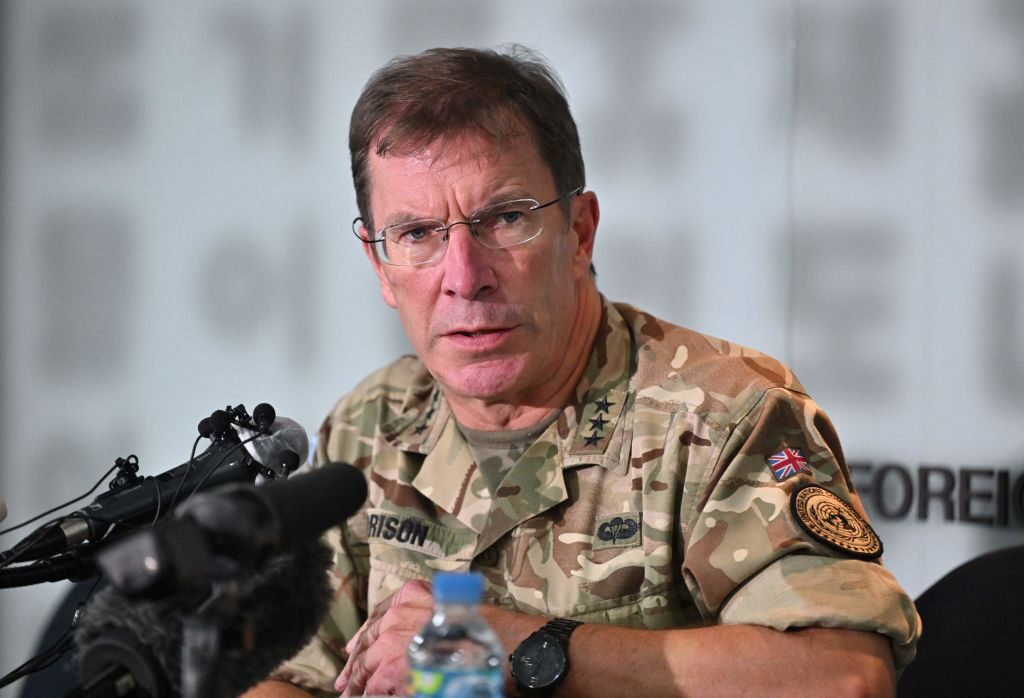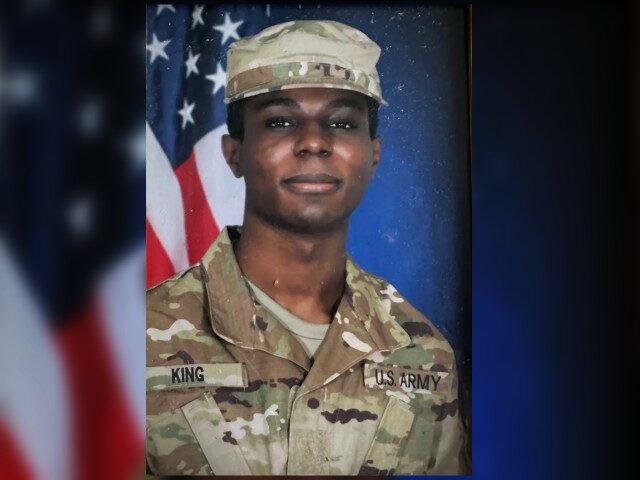United Nations Command, the agency responsible for implementing the 1953 armistice that ended hostilities in the Korean War, confirmed on Monday that it had begun “conversations” with North Korea about the fate of American soldier Travis King.
King reportedly purchased a ticket to a tour of the Demilitarized Zone (DMZ) between North and South Korea last week and, while in the Panmunjom “peace village” on the border, ran into North Korea. He departed for the DMZ after military escorts accompanied him to Incheon International Airport, in the greater Seoul area, to board a flight to Texas. Rather than boarding the flight, King bizarrely got on a bus for the tour.
Prior to his disappearance, King, believed to be 23 years old, served two months in a South Korean jail for allegedly assaulting South Korean citizens and attacking police.
American officials have emphasized that King “willfully and without authorization” ran into North Korea, meaning he was not under any American military orders to do so nor is there evidence that anyone in the armed forces conspired with him on his flight.
“This man gives out a loud ‘ha ha ha,’ and just runs in between some buildings,” another member of the DMZ tour that King took told CBS News last week. “I thought it was a bad joke at first, but when he didn’t come back, I realized it wasn’t a joke, and then everybody reacted and things got crazy.”

U.N. Command deputy commander Lieutenant General Andrew Harrison speaks at a press briefing at the Seoul Foreign Correspondents’ Club in Seoul on July 24, 2023. The U.N. has started a conversation with Pyongyang over American soldier Travis King who ran across the border into North Korea last week. (JUNG YEON-JE/AFP via Getty Images)
American authorities have failed to engage Pyongyang on King’s departure and his exact location and current state remain unknown at press time. Neither the communist North Korean government nor North Korean state media – which, in the past, has been eager to boast of Americans imprisoned in the country – has made any public statement acknowledging King’s illicit entry into the country or his fate. He has not been seen in public, in North Korea or elsewhere, since Tuesday, when he ran across the border.
A U.N. Command official confirmed on Monday that North Korea was discussing King with the international institution, the first piece of public evidence that the communist regime of dictator Kim Jong-un is aware of King and willing to address his situation.
Lieutenant General Andrew Harrison, who Reuters identified as “a British Army officer serving as deputy commander” of the U.N. Command, said on Monday that his organization is in “conversation” with the Korean People’s Army (KPA), the North Korean military, regarding King.
“The conversation has commenced with the KPA through the mechanisms of the Armistice agreement,” Harrison reportedly asserted. “I can’t say anything that could prejudice that process. … [t]he primary concern for us is Private King’s welfare.”
Harrison’s remarks at a media briefing on Monday suggest that discussions with North Korea on the matter are being made through the “pink phone,” the Korea JoongAng Daily reported, describing the medium as “a pink phone on the South Korean side of the JSA that links the UNC with the KPA.” The JSA is the Joint Security Area, the part of the DMZ where King disappeared. The pink phone is believed to be located in Panmunjom; the Associated Press noted that U.N. Command boasted of regular conversations with North Korea through the phone as of January.
“Talking via the ‘pink phone,’ we passed 98 messages & held twice-daily line checks for timely & meaningful information exchange,” the agency said in a post that month on Twitter.
JoongAng Daily reported that Harrison also made some remarks to the Sunday Times in which he confirmed that U.N. Command had no information regarding King’s status.
We don’t know the location of Private King at the moment, but we are in communication with the Korean People’s Army, and we are maintaining, through the joint security area, constant dialogue with the KPA. That link is open and is alive,” he reportedly said.
The government of leftist American President Joe Biden expressed frustration this weekend over North Korea’s silence on the King case. Biden has struggled significantly since becoming president in 2021 to maintain any communication with North Korea at all. In March of that year, North Korean First Vice Minister of Foreign Affairs Choe Son Hui issued a statement, following weeks of unacknowledged messages from Washington, that responding to diplomacy from America was a “waste of time” and Kim did not believe there “is [a] need to respond to the U.S.”
On Friday, Secretary of State Antony Blinken lamented during remarks at a security forum that the State Department had reached out to Pyongyang regarding King – and, prior to his disappearance, regarding potential nuclear talks with no preconditions – only to have North Korea increase its nuclear provocations and not answer the call to talks.
“We have channels of communication. We have used them, and we made clear going back to early in this administration that we were prepared to have negotiations with North Korea on the nuclear program with no preconditions,” Blinken explained, according to the South Korean Yonhap News Agency.
“We sent that message several times. Here is the response we got: one missile launch after another,” Blinken said.
During the same appearance, Blinken said the Biden administration was “very concerned” about King and that it had “communicated to North Korea” about him, but had no information to share.
North Korea has greatly increased its missile activity under Biden. Yonhap noted that the rogue communist state “fired an unprecedented 69 ballistic missiles in 2022, the largest number of ballistic missiles launched in any given year.” A week before King ran into North Korea, the country announced an allegedly successful test of a new intercontinental ballistic missile (ICBM), named the “Hwasong-18,” which it claimed ran on solid fuel. Solid fuel missiles, as opposed to liquid fuel, can be prepared for launch much more quickly, giving targets less time to prepare for the incoming attack.
The U.N. Security Council warned last week that the Hwasong-18 appeared capable of reaching “most points on earth.”
On Saturday, North Korea continued its belligerent activities with the firing of multiple cruise missiles into the Yellow Sea, bordered on its other side by China.
“Our military has bolstered surveillance and vigilance while closely cooperating with the United States and maintaining a firm readiness posture,” the South Korean Joint Chiefs of Staff (JCS) said on Saturday, offering little detail regarding the missiles in question.
Thursday will mark the 70th anniversary of the armistice agreement, which North Korea celebrates as “Victory Day.” The armistice did not end the war – neither side surrendered or signed a peace agreement – meaning North Korea and its ally China remain in a technical state of war against South Korea and America.

COMMENTS
Please let us know if you're having issues with commenting.